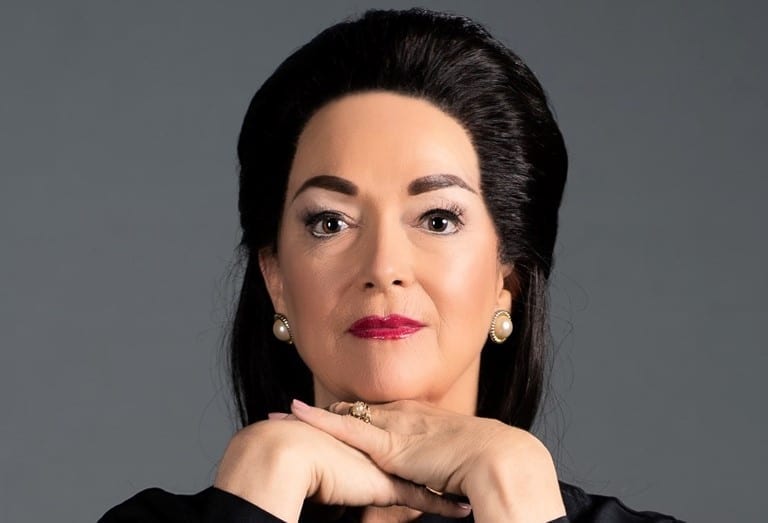LOGAN — To say that playwright Terrence McNally is a stalwart of the American theatre would be a gross understatement. Critic Rex Reed describes McNally as “one of the greatest contemporary playwrights the theater world has yet produced.” And Mr. Reed is correct. McNally has received two Tony Awards for Best Play with Love! Valour! Compassion! and Master Class, as well as Tony Awards for Best Book of a Musical with Kiss of the Spider Woman and Ragtime. McNally is a 2018 inductee of the American Academy of Arts and Letters. The honor of election is considered the highest form of recognition of artistic merit in the United States. His other accolades include an Emmy Award, two Guggenheim Fellowships, a Rockefeller Grant, four Drama Desk Awards, and the list goes on. It’s a given: the man knows how to write.

Utah Festival Opera & Musical Theatre is currently producing McNally’s Master Class in Logan. Given the show’s subject matter, it’s a perfect fit (though the language has been cleaned up for the Utah audience) for the festival: not an opera at all but indeed a straight play that embraces and celebrates opera and the singer. The play is based on a collection of master classes given by iconic opera singer Maria Callas at Julliard in the late 1970s as the once opera diva copes with life after super stardom. Her voice gone and many bridges burned, she is truly the Medea of the operatic world, literally and figuratively.
What makes Master Class stand out as a masterful play is not as much the writing, which is good, but the actress playing Maria Callas. There aren’t a lot of plays written for women in their forties or fifties, and this character is a tour de force: raw and desperate, uncompromising and painful, proud yet pitiful. Maria Callas is a role that demands an actress with chops. Without those chops, it’s an interesting bio-drama about a once remarkable opera singer. Suzan Hanson plays Maria Callas and does an admirable job, but she doesn’t have the edge, the rawness, the reckless, almost-desperation that the role requires. An accomplished opera singer herself, Hanson is lovely, truly lovely, but Callas isn’t. She isn’t supposed to be lovely or vulnerable, or at least she isn’t going to show it, because if she does, she would be destroyed. In the play, Callas asks one of the students who is singing Lady MacBeth’s letter aria, “Is there anything you would kill for?” The student answers, “not off the top of my head.” Maria Callas would have answered “Yes! I want to kill my mother, my sister, the Germans during World War II, Renata Tebaldi, Jacqueline Kennedy!” I never believed that Hanson’s Callas felt the overwhelming emotions that made up Callas as a character.
Maria Callas had a tempestuous life and even more tempestuous loves: a ten-year loveless marriage to a wealthy industrialist, and a ten-year love affair with the wealthy shipping magnate, Aristotle Onassis, who left her in 1968 to marry Jacqueline Kennedy, shocking the world. The actress portraying her must bring all this tempestuous history with her into the performance. As Callas talks to a young soprano explaining the motivation of the sleepwalking character in Bellini’s La sonnambula, Callas explains how the love of the character’s life has left her to marry another woman, that the wedding ring that should be on the character’s finger is not there and it is on the finger of another. Callas isn’t thinking of the character in La sonnambula, she’s thinking of herself, and it is important that as an audience member I understand that, feel that, feel how betrayed and bitter Callas felt when Onassis left her for Jackie. Again Hanson is a good actress, but she is too soft for this play. Hanson’s Callas feels almost needy, wanting the audience to love and understand her. I never felt from Hanson the weight of what Callas had to carry throughout her life. Callas’s constant references to playing Cherubini’s Medea parallels Callas’ own life, killing her child for her “husband” just as Medea killed her child for Jason.
The cast is good, though Rose-Antoinette Bellino, as Sophie, the First Soprano, pushes the humor and the naivete of the character, not allowing the awe of singing for this woman to truly effect her. David Smolokoff as Tony, the Tenor, has some nice moments. When Hanson interacts with her students, she is the most effective and engaging: that’s when she connects as an actress and has some stunning moments. However Bridgette Gan, as Sharon, the Second Soprano, is perfect in the role, and when she and Hanson interact, Hanson’s innate vulnerability and love of opera works. I must also mention Dallas K. Heaton as Manny the Accompanist. As Manny, Heaton is charming, talented and spot on.
Unfortunately, director, George Pinney, pushes Hanson too quickly through most of the emotional transitions in the play. Callas pulls herself all over her emotional palate, and though those transitions are fast, they must be felt and realized by the actress, with a change of focus, of heart, of tone, of connection and disconnection with her past. Those emotional transitions are vital in this piece, because otherwise there’s no impact. It then turns into just a nice little play about an opera singer.
The production is at times uneven, but it is certainly worthy of a view. The writing is phenomenal, and the actors are talented if a bit soft. Master Class is rarely done in Utah, so the opportunity to see a rarely done play is not an opportunity to pass up.
[box]The Utah Festival Opera and Musical Theatre production of Master Class plays at the Utah Theatre (18 West Center Street, Logan) on July 9 and 24, 2019 at 7:30 PM and July 16, 2019 and August 1, 2019 at 1 PM. Tickets are $12-79. For more information, visit their website.[/box]
